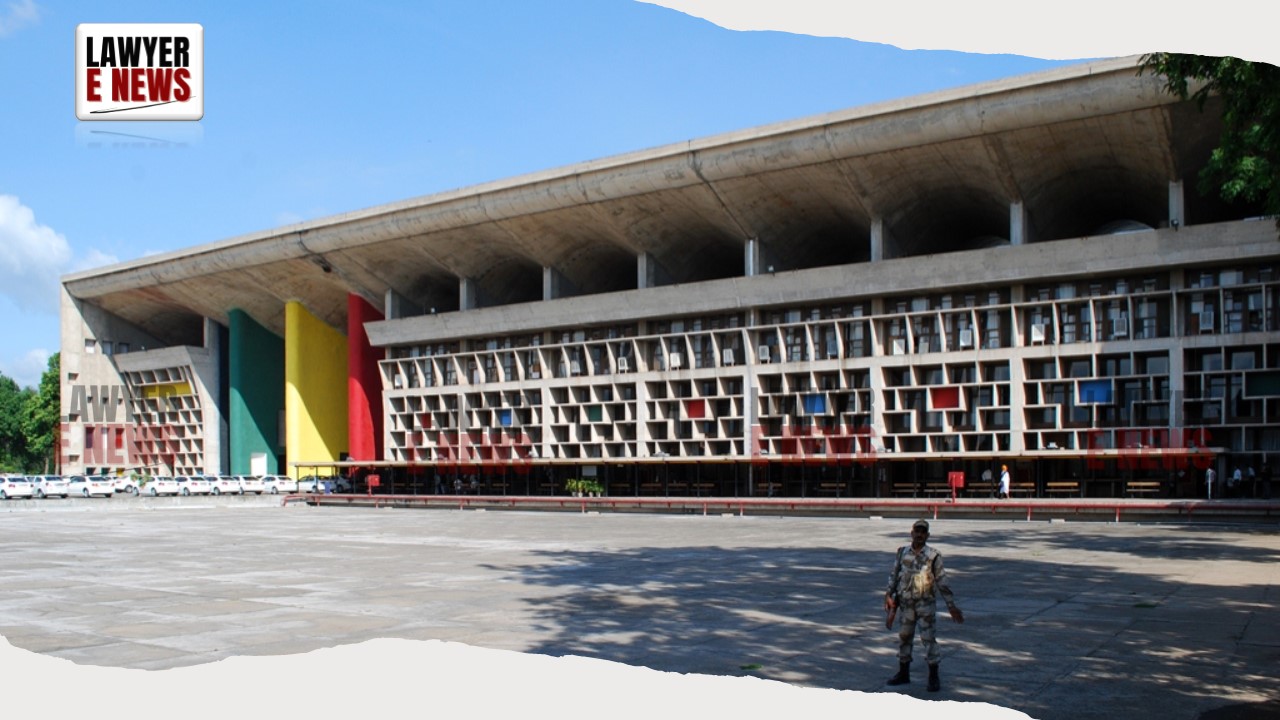-
by Admin
15 February 2026 2:36 AM



The Punjab and Haryana High Court, in its judgment delivered on November 6, 2024, dismissed the appeals of Baljinder Kaur alias Preeti and Gurjant Singh alias Janta, affirming their conviction and life imprisonment for the 2017 murder of Hardev Singh. The bench comprising Justice Sureshwar Thakur and Justice Kuldeep Tiwari held that the evidence presented by the prosecution—comprising CCTV footage, extra-judicial confessions, and recoveries of stolen items—formed a conclusive and unbroken chain linking the appellants to the crime.
The case arose from the murder of Hardev Singh, an elderly resident of Ludhiana, who was found dead in his home on August 3, 2017. His nephew discovered the body, bearing multiple injuries, and noticed that cash, jewelry, and a scooter were missing from the residence. The police registered an FIR under Sections 302 and 34 of the Indian Penal Code (IPC), eventually apprehending Baljinder Kaur and Gurjant Singh based on leads from CCTV footage and witness statements. The trial court convicted both under Sections 302/34 IPC in September 2022 and sentenced them to life imprisonment.
The High Court upheld the trial court’s findings, emphasizing that circumstantial evidence must form an unbroken chain leading to only one conclusion: the guilt of the accused. The CCTV footage, showing the appellants near the crime scene, was held admissible under Section 65-B of the Indian Evidence Act as it was duly certified and corroborated by other evidence. The Court dismissed the defense’s argument that a Test Identification Parade was necessary, stating that the footage provided clear and sufficient evidence.
Baljinder Kaur’s extra-judicial confession to PW-16 was deemed a crucial link in the chain of evidence. The confession, made to someone the appellant trusted, was supported by her presence near the crime scene and the recovery of stolen items. Although Gurjant Singh did not directly confess, his presence during Kaur’s confession and subsequent recoveries implicated him as well.
The recoveries made pursuant to the appellants’ disclosure statements further strengthened the prosecution's case. Items recovered included cash, jewelry, and weapons bearing human blood, which forensic analysis confirmed. The Court relied on the principles governing disclosure statements under Section 27 of the Evidence Act, noting that the appellants failed to discredit the evidence or suggest that the recoveries were planted.
The medical evidence corroborated the prosecution’s narrative. The postmortem report established that the victim’s death resulted from shock and hemorrhage due to multiple injuries inflicted by the recovered weapons. Forensic tests confirmed that the weapons bore traces of human blood, aligning with the injuries described in the autopsy.
Dismissing the appeals, the High Court concluded that the evidence presented by the prosecution was credible, conclusive, and legally sufficient to sustain the convictions. It found no procedural lapses or misappreciation of evidence in the trial court’s judgment.
The Court’s decision underscores the evidentiary value of electronic records, extra-judicial confessions, and disclosure-based recoveries in building a robust circumstantial case. By affirming the appellants’ life sentences, the judgment reinforces the importance of an unbroken chain of evidence in securing convictions under the IPC.
The appeals were dismissed, and the sentences upheld. Baljinder Kaur and Gurjant Singh will remain in custody to serve their life imprisonment.
Date of Decision: November 6, 2024
